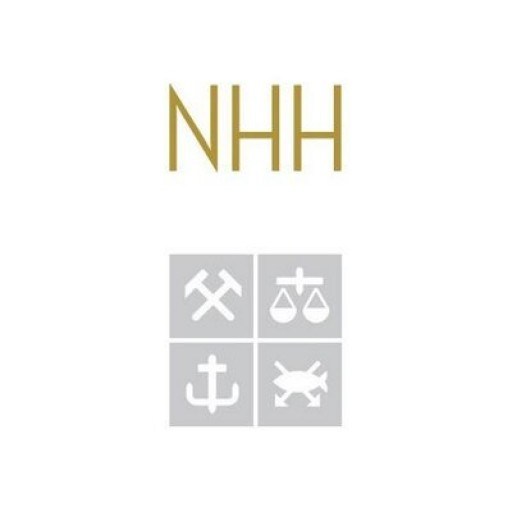Photos of university / #unioslo
An advanced curriculum on energy law, from wellhead to burner tip, designed and structured specifically for legal professionals in the energy sector. The programme is a part-time LL.M offered jointly by the Universities of Groningen (the Netherlands), Oslo (Norway), Aberdeen (United Kingdom) and Copenhagen (Denmark).
The North Sea Energy Law Master's Program at the University of Oslo offers a comprehensive and in-depth education in the legal frameworks governing energy resources and infrastructure in the North Sea region. Designed for students interested in the legal, regulatory, and policy aspects of energy development, this program provides a unique opportunity to explore the complex legal challenges associated with offshore energy projects, environmental protection, and transboundary cooperation. Throughout the coursework, students will engage with topics such as international energy law, maritime law, petroleum law, renewable energy law, and the regulation of offshore oil and gas activities. The program emphasizes critical thinking and practical skills, preparing graduates for careers in law firms, government agencies, international organizations, and energy companies operating in or related to the North Sea and broader maritime zones. Students will benefit from the expertise of leading academics and legal practitioners, as well as from access to state-of-the-art facilities and resources. The curriculum combines theoretical instruction with case studies, legal drafting exercises, and interactive seminars, enabling students to develop a thorough understanding of legal issues, policies, and negotiations relevant to the energy sector. Additionally, the program encourages interdisciplinary approaches, integrating legal studies with environmental science, economics, and politics. Upon completion, graduates will be equipped with the knowledge and skills necessary to navigate the legal complexities of offshore energy projects, contribute to sustainable development practices, and participate actively in shaping legal frameworks at national and international levels. This master's program is ideal for students aiming to specialize in energy law within the context of the North Sea's vital and evolving energy landscape, combining academic excellence with practical relevance to the rapidly changing energy industry.
The Master’s degree program in North Sea Energy Law at the University of Oslo requires applicants to hold a Bachelor's degree or equivalent in law or a closely related field. Prospective students must demonstrate proficiency in English, typically through standardized tests such as TOEFL or IELTS, meeting the minimum score requirements specified by the university. The program seeks candidates with a strong interest in energy law, environmental regulations, and maritime law, and prefers applicants with relevant academic background or work experience in these areas.
Admission criteria include submission of academic transcripts, a statement of motivation outlining the applicant’s interest and goals related to North Sea energy law, and two letters of recommendation. International students must fulfill visa and residence permit requirements as stipulated by Norwegian regulations. The program also assesses applicants based on academic performance, relevant work experience, and personal suitability.
The program is designed as a two-year full-time course, consisting of mandatory and elective courses that cover topics such as offshore energy law, maritime law, environmental law, and energy policy. Students are required to complete a Master's thesis, demonstrating the ability to conduct independent research on a relevant topic within North Sea energy law. The curriculum emphasizes both theoretical understanding and practical application, preparing graduates for careers in legal consultancy, policy-making, or industry roles related to energy and maritime law in the North Sea region.
Applicants are advised to prepare their documentation carefully, ensuring all required materials are submitted by the application deadline, which typically falls in March for autumn semester intake. Successful applicants receive detailed information about registration, orientation, and subsequent program requirements, including participation in seminars, internships, or research projects as part of the academic program.
The University of Oslo offers comprehensive financing options for students enrolled in the North Sea Energy Law program. Funding sources primarily include government grants, scholarships, and student loan arrangements provided through the Norwegian State Educational Loan Fund (Lånekassen). Norwegian students benefit from favorable loan and grant schemes that cover tuition fees and living expenses, with additional support available for students from Nordic countries under bilateral agreements. International students, while generally not eligible for Norwegian student funding, may access scholarships specific to international enrollment, such as the Erasmus+ program or university-specific scholarships aimed at attracting talented students worldwide.
The university also advises students to explore the Norwegian government’s scholarship portals, which list various funding opportunities for both Norwegian and international students. Private foundations and legal associations sometimes offer scholarships or grant opportunities for students pursuing law degrees with a focus on energy law. Furthermore, students are encouraged to seek employer sponsorships, particularly those already working in the energy or legal sectors, who may provide financial support as part of professional development arrangements.
During the course of the program, students are advised to remain attentive to deadlines for scholarship applications and loan arrangements, which are typically handled well in advance of academic years. The university provides dedicated financial aid advice through its student services center, assisting students in preparing application documents, understanding their financial obligations, and exploring part-time employment opportunities that comply with visa regulations for international students.
Overall, financing the North Sea Energy Law program at the University of Oslo involves a combination of Norwegian governmental support, external funding sources, and individual institutional aid, designed to make the legal studies accessible and affordable for a diverse student body.
The Master’s program in North Sea Energy Law at the University of Oslo is a specialized postgraduate degree designed to provide in-depth knowledge and understanding of the legal frameworks governing energy resources in the North Sea region. This program aims to prepare students for careers in national and international energy sectors, including legal advising, policy development, regulatory authorities, and academia. The curriculum covers a broad range of topics, including the legal regulation of offshore oil and gas activities, renewable energy projects, maritime law, environmental law, and international agreements related to energy resources. Students will explore the legal aspects of energy exploration, production, transportation, and distribution, with particular emphasis on the unique challenges faced in North Sea countries, such as Norway, the UK, Denmark, and the Netherlands.
Throughout the program, students gain a comprehensive understanding of how international law, EU regulations, and national legislation intersect in the context of energy resource management. Special modules address the legal implications of new energy technologies, climate change policies, and sustainable development within the offshore energy sector. The program also promotes understanding of dispute resolution mechanisms, licensing procedures, and contractual arrangements typical in offshore energy projects. Practical case studies and seminars with industry professionals and legal experts further enhance learning outcomes, providing students with real-world insights and networking opportunities.
The program typically combines coursework, research, and a master’s thesis, encouraging analytical thinking and independent research skills. Students are expected to develop expertise in drafting legal documents, analyzing legislative proposals, and advising on regulatory compliance. The program is suitable for law graduates, energy sector professionals, and policymakers seeking to deepen their legal knowledge in offshore and renewable energy law. Graduates from this program are well-equipped to contribute to policy development, legal consultancy, project management, and academic research in the field.
The University of Oslo’s strong focus on research and its strategic location in Norway—one of Europe's leading countries in offshore energy production—make it an ideal place for studying North Sea Energy Law. The program is delivered by faculty members with extensive expertise in international law, maritime law, and energy law, ensuring students receive a rigorous and relevant education aligned with current industry standards and future challenges. Upon completion, graduates receive a master’s degree in law (LL.M.), which is recognized internationally and opens pathways to diverse career opportunities in the rapidly evolving energy sector.





